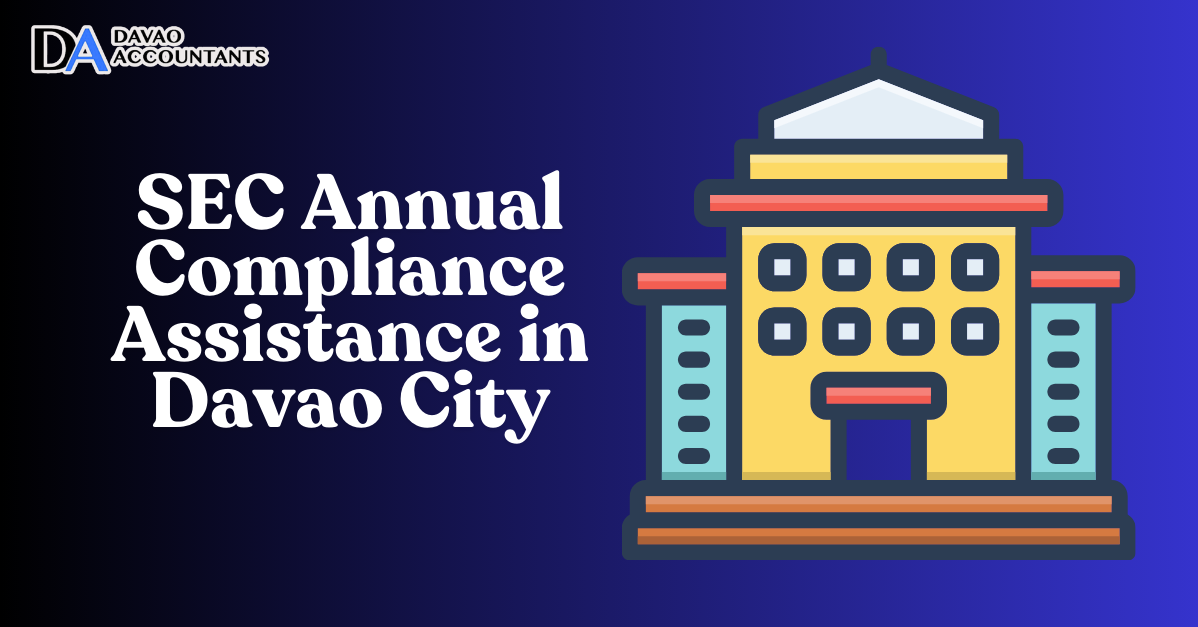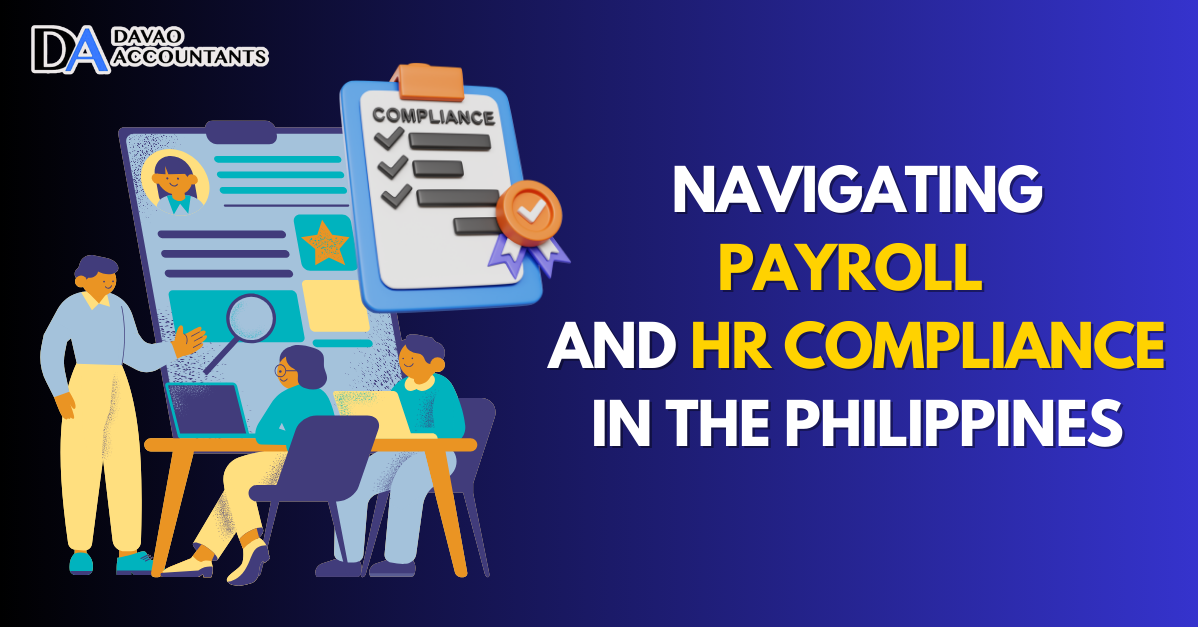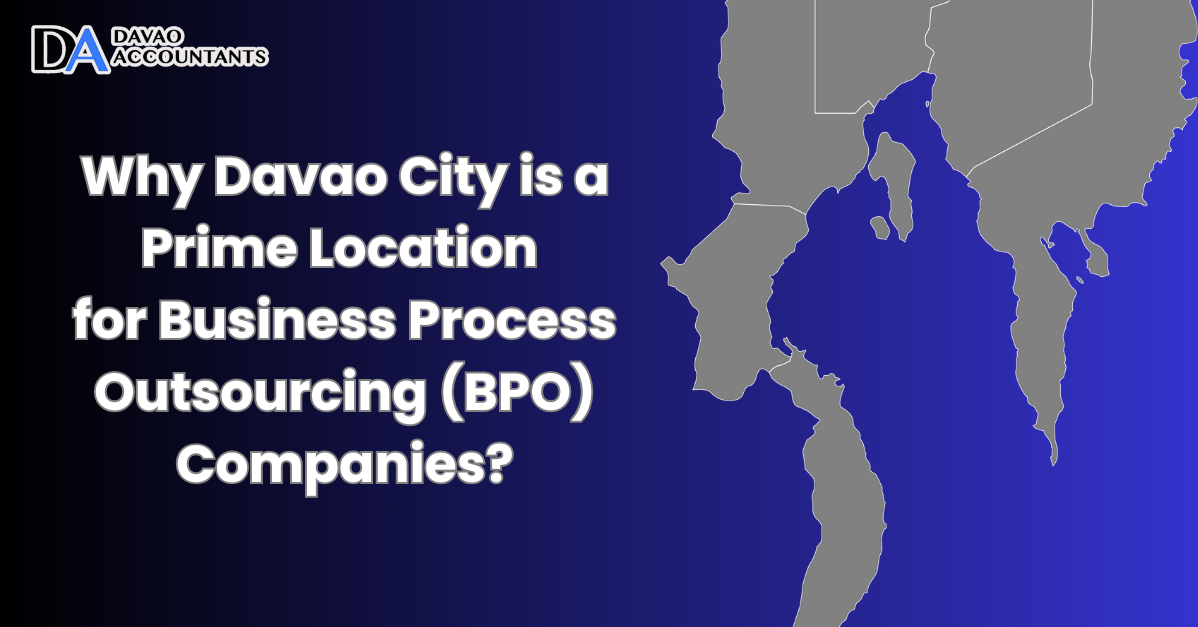Statutory compliance refers to the legal framework within which businesses must operate. It involves adhering to laws and regulations set by the government to ensure fair and ethical business practices. For businesses in Davao City, statutory compliance is crucial for avoiding legal issues, penalties, and ensuring a smooth operation. This article will provide an overview of key compliance requirements for businesses in Davao City and how to navigate them effectively.
Table of Contents
ToggleWhat is Statutory Compliance?
Statutory compliance involves adhering to the rules, regulations, and laws set forth by local, regional, and national authorities. This includes compliance with labor laws, tax regulations, environmental regulations, business permits, and other legal obligations. For businesses in Davao City, this means understanding and following the specific requirements outlined by the local government, including the provisions set out in the 2017 Revenue Code of Davao City.
Key Areas of Statutory Compliance in Davao City
1. Business Registration and Permits
Every business operating in Davao City must be registered and hold the appropriate permits. The primary steps for business registration include:
• Registering Your Business Name: Sole proprietors must register their business name with the Department of Trade and Industry (DTI), while corporations and partnerships need to register with the Securities and Exchange Commission (SEC).
• Barangay Clearance: A Barangay Clearance must be obtained from the local barangay where the business is located.
• Mayor’s Permit: Every business must secure a Mayor’s Permit from the Davao City Business Bureau. The permit must be renewed annually, and failure to do so can result in fines and the suspension of business operations.
2. Tax Compliance
Businesses in Davao City are required to comply with various tax regulations. Key aspects of tax compliance include:
• Local Business Tax (LBT): The Local Business Tax is imposed by the Davao City government based on the gross sales or receipts of the business. Businesses must file and pay the LBT quarterly.
• National Taxes: Businesses must also comply with national tax obligations set by the Bureau of Internal Revenue (BIR). This includes registering for a Tax Identification Number (TIN), filing income tax returns, and paying Value Added Tax (VAT) or percentage tax, depending on the nature of the business.
• Community Tax Certificate (CTC): Also known as the cedula, the Community Tax Certificate is required for all businesses and must be obtained annually.
3. Labor Law Compliance
Compliance with labor laws is essential to ensure fair treatment of employees and avoid legal disputes. Businesses must adhere to regulations set by the Department of Labor and Employment (DOLE), which include:
• Minimum Wage: Businesses must pay employees at least the minimum wage as prescribed by DOLE for the region. The minimum wage rates vary depending on the type of industry and business size.
• Employee Benefits: Businesses must provide statutory benefits, including contributions to the Social Security System (SSS), PhilHealth, and the Home Development Mutual Fund (Pag-IBIG).
• Contracts and Working Conditions: Employers must provide written employment contracts, adhere to working hour regulations, provide overtime pay, and ensure safe working conditions.
4. Environmental Compliance
For businesses that may impact the environment, such as manufacturing and construction companies, environmental compliance is mandatory. The Department of Environment and Natural Resources (DENR) oversees environmental regulations, which include:
• Environmental Permits: Businesses must secure the necessary environmental permits and licenses, such as an Environmental Compliance Certificate (ECC) before commencing operations.
• Waste Management: Businesses must comply with local waste management regulations, ensuring proper disposal and treatment of waste materials.
5. Health and Safety Compliance
Health and safety regulations are enforced to ensure that businesses provide a safe environment for employees and customers. Compliance requirements include:
• Sanitary Permit: Businesses, especially those in the food and healthcare sectors, must obtain a Sanitary Permit from the local government.
• Fire Safety Compliance: Obtain a Fire Safety Inspection Certificate from the Bureau of Fire Protection (BFP) to ensure the business premises meet fire safety standards.
Penalties for Non-Compliance
Failure to comply with statutory requirements can lead to various penalties, including:
• Fines and Surcharges: Businesses that fail to file taxes or renew permits on time may face fines, surcharges, and interest penalties.
• Business Closure: Repeated non-compliance can result in the suspension or closure of business operations by local authorities.
• Legal Action: Non-compliance with labor laws or environmental regulations can result in legal disputes and sanctions.
How to Ensure Statutory Compliance in Davao City
To maintain compliance with statutory requirements, businesses in Davao City should:
1. Stay Informed: Regularly update your knowledge of local and national regulations. The government may update laws and regulations, so staying informed is crucial.
2. Maintain Accurate Records: Keep detailed financial and operational records, including payroll, tax filings, and permits, to demonstrate compliance during audits or inspections.
3. Seek Professional Assistance: Compliance can be complex, especially for small businesses. Seeking assistance from professionals like Davao Accountants can help you navigate the requirements efficiently.
How Davao Accountants Can Help
Davao Accountants offers comprehensive services to help businesses comply with statutory requirements in Davao City. Our services include:
• Tax Compliance Services: We assist with tax registration, filing, and payment to ensure compliance with local and national tax laws.
• Business Registration Assistance: We help you navigate the business registration process, including securing permits and licenses.
• Payroll and Labor Compliance: Our payroll services ensure compliance with labor laws, including proper calculation of wages and statutory contributions.
• Consulting and Advisory: We provide expert advice on statutory compliance, helping you avoid penalties and legal issues.
Conclusion
Statutory compliance is a critical aspect of running a successful business in Davao City. From business registration and tax compliance to labor and environmental regulations, understanding and adhering to these requirements is essential. By staying informed and seeking professional assistance, businesses can ensure compliance, avoid penalties, and create a foundation for long-term success.
Need Help with Statutory Compliance?
Davao Accountants is here to guide you through the complexities of statutory compliance in Davao City. Contact us today to ensure your business meets all legal requirements and operates smoothly.
Contact us for more information or to schedule a consultation with our experts. You can also send an email to support@davaoaccountants.com.









